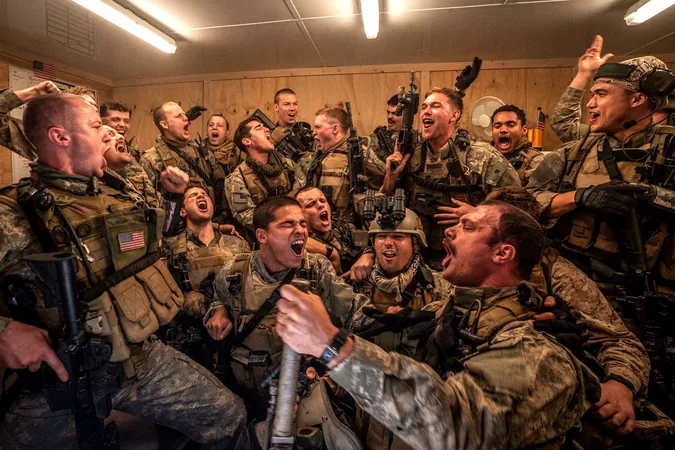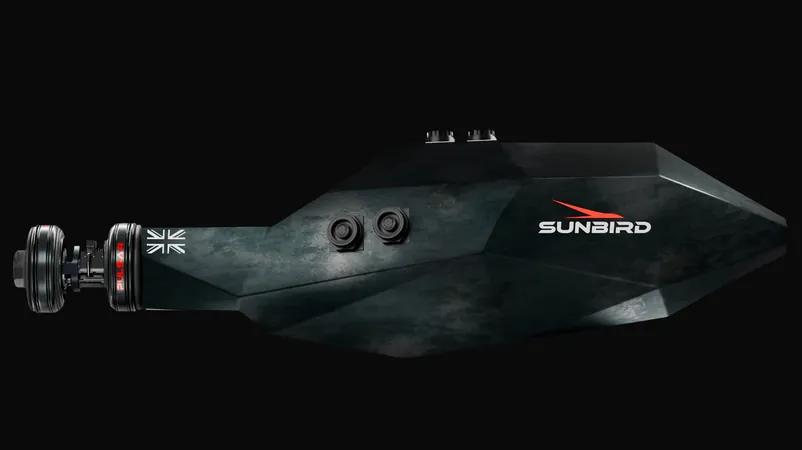
Warfare: A Gripping Look at the Iraq War—but What’s Missing?
2025-04-11
Author: Chun
An Unflinching Account of Combat's Horror
In the wake of its predecessor, *Civil War*, director Alex Garland's latest film *Warfare* plunges viewers deep into the visceral chaos of a real battle in Ramadi, Iraq, from 2006. Critics are bound to use the word "visceral," reflecting both the emotional gut-punch and the raw depiction of wartime reality. Co-written and directed by Garland and former Navy SEAL Ray Mendoza, the film serves as a harrowing snapshot of a brutal military operation.
Craftsmanship That Captivates and Disturbs
The film's craftsmanship is notable. David Thompson’s handheld camera moves fluidly through the chaos while Glenn Freemantle’s sound design amplifies every explosion and cry, creating a nerve-wracking atmosphere. Yet, this relentless focus, mostly confined to the small house used as a command post, becomes a double-edged sword—while it grips with unyielding suspense, it limits emotional depth.
A Focus on Teamwork Over Character
From the onset, *Warfare* deliberately sidesteps character development. The SEAL team is presented not as individuals but as a cohesive unit, leaving us with only fleeting glimpses of their humanity. A troubling scene introduces the soldiers watching a provocative workout video before they are called into action, immediately juxtaposing their moments of levity with the grim reality of war.
Chaos Erupts: The Price of War
The operation goes horrifically awry when a jihadist tosses a grenade into the house, resulting in fatal injuries to two of the soldiers: Elliott and Sam. Sadly, their backstories are stripped away, leaving only their agony visible through gruesome close-ups. In a rare twist, we witness the profound camaraderie among the soldiers as they tend to their injured comrades, showcasing humanity amidst the chaos.
Outstanding Performances Amid Crisis
The film features commendable performances, especially by Will Poulter as the overwhelmed commander and Charles Melton in a later role commanding reinforcements. D'Pharaoh Woon-A-Tai, who plays Mendoza, portrays a character torn between orders and the grim realities on the ground. The cast underwent intensive training, which translates into a strong sense of authenticity.
A Lack of Depth in the Narrative
Yet, with such a talented ensemble, the film’s prioritization of raw realism at the expense of character depth feels like a missed opportunity. By eliminating traditional storytelling elements like character backstories, *Warfare* sacrifices viewer engagement and long-lasting reflection on the meaning of war.
Confronting the Aftermath and Its Impact
While the intense experience demands attention, it leaves viewers rattled rather than contemplative. The film’s conclusion, featuring dazed Iraqi residents emerging post-conflict, starkly contrasts their terrifying reality with the soldiers’ experiences, pushing audiences to grapple with the broader implications of warfare.
A Powerful Yet One-Dimensional Experience
Despite its gripping portrayal, *Warfare* lacks the more nuanced exploration seen in *Civil War*, staying focused on the immediate horrors of battle. By concentrating solely on the physical turmoil, the film overlooks the moral complexities of the Iraq War, raising questions that linger long after the credits roll. Ultimately, it presents a striking depiction of a harrowing moment in time, yet leaves us craving a deeper analysis of its consequences.



 Brasil (PT)
Brasil (PT)
 Canada (EN)
Canada (EN)
 Chile (ES)
Chile (ES)
 Česko (CS)
Česko (CS)
 대한민국 (KO)
대한민국 (KO)
 España (ES)
España (ES)
 France (FR)
France (FR)
 Hong Kong (EN)
Hong Kong (EN)
 Italia (IT)
Italia (IT)
 日本 (JA)
日本 (JA)
 Magyarország (HU)
Magyarország (HU)
 Norge (NO)
Norge (NO)
 Polska (PL)
Polska (PL)
 Schweiz (DE)
Schweiz (DE)
 Singapore (EN)
Singapore (EN)
 Sverige (SV)
Sverige (SV)
 Suomi (FI)
Suomi (FI)
 Türkiye (TR)
Türkiye (TR)
 الإمارات العربية المتحدة (AR)
الإمارات العربية المتحدة (AR)